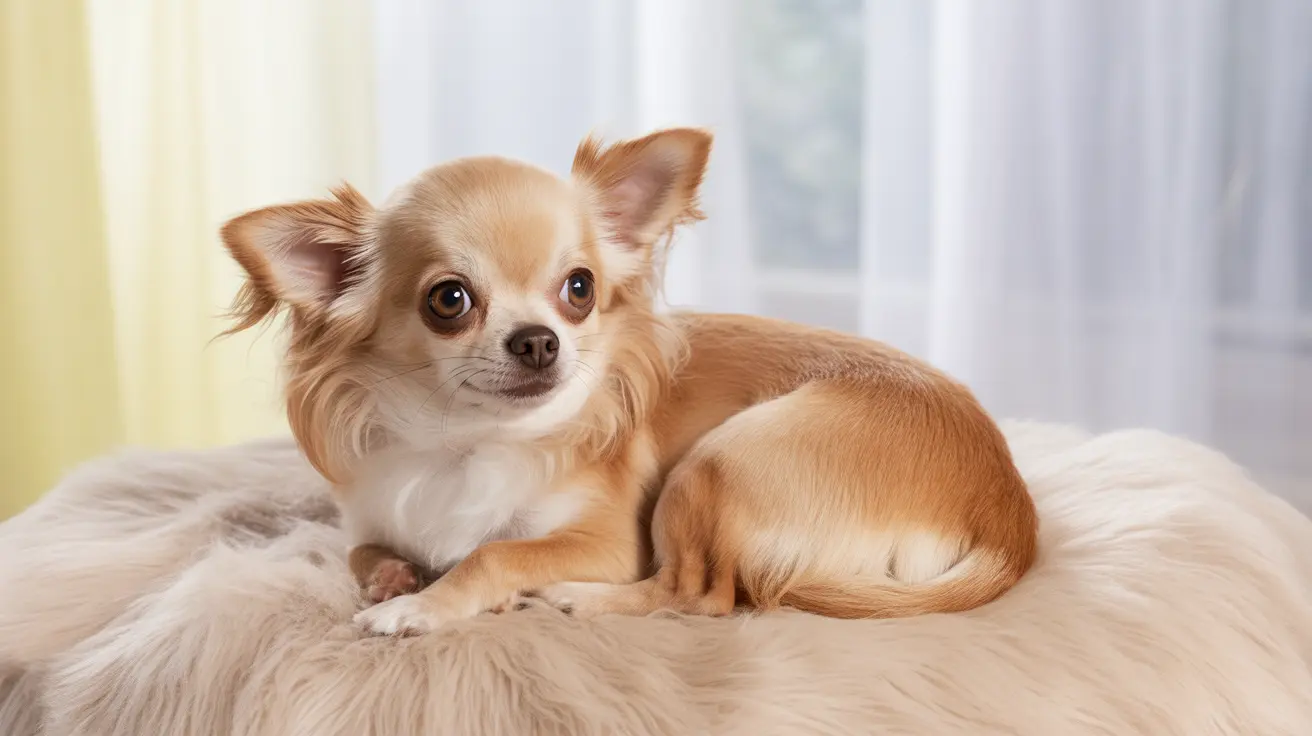If you've ever caught your furry friend obsessively licking your blankets, you're not alone. This common canine behavior often leaves pet owners puzzled and searching for answers. While it might seem unusual to us, there are actually several legitimate reasons why dogs engage in this behavior, ranging from natural instincts to potential health concerns.
Understanding why your dog licks blankets is crucial for determining whether it's a harmless habit or a sign of an underlying issue that needs attention. Let's explore the various causes and solutions for this intriguing canine behavior.
Natural Instincts and Normal Behavioral Reasons
Dogs are naturally curious creatures that explore their world through their mouths and tongues. Blanket licking often stems from innate behaviors passed down from their wild ancestors and early puppyhood experiences.
Maternal instincts play a significant role in this behavior. Puppies are licked clean by their mothers from birth, creating a strong association between licking and comfort. This can translate into adult dogs licking soft surfaces like blankets, especially when they're seeking comfort or trying to self-soothe.
Emotional and Psychological Factors
Many dogs lick blankets as a response to emotional or psychological triggers. Anxiety, stress, and boredom are common culprits behind this behavior. When dogs feel anxious or understimulated, they may turn to repetitive behaviors like blanket licking to cope with their emotions.
The act of licking releases endorphins in a dog's brain, creating a calming effect that can become somewhat addictive. This is why some dogs develop a habit of licking blankets during stressful situations or when left alone for extended periods.
Medical Causes for Blanket Licking
Sometimes, excessive blanket licking can signal underlying health issues that require veterinary attention. Common medical causes include:
- Gastrointestinal problems
- Allergies (both food and environmental)
- Skin conditions or irritations
- Dental issues
- Neurological disorders
- Pain or discomfort in other parts of the body
If your dog suddenly starts licking blankets more frequently or combines this behavior with other unusual symptoms, it's important to consult with your veterinarian to rule out medical causes.
Addressing and Managing Blanket Licking
While occasional blanket licking isn't usually cause for concern, excessive licking may need to be addressed. Here are some effective management strategies:
- Increase physical exercise and mental stimulation
- Provide appropriate chew toys and puzzles
- Maintain a consistent daily routine
- Create a calm, stress-free environment
- Regular veterinary check-ups to monitor health
- Consider working with a professional dog trainer or behaviorist
Frequently Asked Questions
Why does my dog lick blankets even after they're washed?
Dogs have an incredibly sensitive sense of smell and can detect traces of scents even after washing. Your dog might still smell your scent, laundry detergent, or microscopic food particles that remain in the fabric.
Can anxiety or stress cause my dog to lick blankets excessively?
Yes, anxiety and stress are common causes of excessive blanket licking. Dogs often use licking as a self-soothing mechanism when feeling anxious or stressed, as it releases calming endorphins.
How can I tell if my dog's blanket licking is due to a medical issue like allergies or pain?
Look for additional symptoms such as excessive scratching, red or irritated skin, changes in appetite or behavior, vomiting, or diarrhea. If you notice any of these signs alongside blanket licking, consult your veterinarian.
What are effective ways to stop my dog from licking blankets out of boredom or habit?
Increase physical exercise, provide mental stimulation through puzzle toys, establish a consistent routine, and redirect the behavior to appropriate activities. Positive reinforcement training can also help break the habit.
When should I consult a vet about my dog's persistent licking of blankets?
Consult a veterinarian if the licking behavior is sudden, excessive, or accompanied by other concerning symptoms. Also seek professional help if the behavior interferes with your dog's daily activities or quality of life.
Conclusion
While blanket licking is often harmless, understanding its root causes helps ensure your dog's wellbeing. By paying attention to patterns and accompanying symptoms, you can determine whether this behavior requires professional intervention or simple lifestyle adjustments. Remember, your veterinarian is always the best resource for addressing concerns about your dog's behavior and health.






